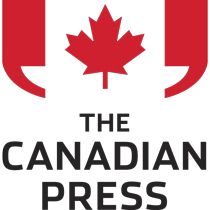“We certainly won’t hold this up, but what we need is much more than that,” Opposition NDP finance critic Trent Wotherspoon said.

Article content
The Opposition NDP says it is prepared to support the Saskatchewan Party’s legislation to lower personal income taxes — but people need more to help with the cost of living.
Article content
Article content
Premier Scott Moe’s government on Monday introduced The Saskatchewan Affordability Act, which is to raise personal income tax exemptions while indexing tax brackets to match inflation, saving an average family of four more than $3,400 over four years.
Advertisement 2
Article content
“We certainly won’t hold this up, but what we need is much more than that,” Opposition NDP finance critic Trent Wotherspoon said.
“We need action now to save families’ hard-earned dollars as they head into the holiday season.”
The Opposition has been pushing Moe to suspend the provincial 15-cent-a-litre fuel tax and axe the provincial sales tax on ready-to-eat grocery items. Two of their emergency motions on those issues have failed to pass in the house.
Speaking with reporters, Wotherspoon stood behind a table of groceries to which provincial sales taxes apply, including a cooked rotisserie chicken, granola bars, pre-made salads and cut fruit and vegetables.
“Oftentimes people are going to (the grocery store) picking up a rotisserie chicken. This fruit (platter) is taxed; same with a veggie platter,” he said.
“These are the kinds of staples that families are relying on. We need to provide some relief.”
Finance Minister Jim Reiter told reporters an estimated 54,000 Saskatchewan residents will not pay provincial income tax once the changes are in place. The Saskatchewan Party had proposed the measures during the October election campaign.
Article content
Advertisement 3
Article content
The legislation introduced Monday also includes a tax credit for first-time homebuyers, along with a credit for home renovations that would provide savings of up to $420 per year.
The bill also promises a 25-per-cent increase in tax credits for children under 18 who have disabilities, and for caregivers.
It keeps the small business tax rate at one per cent while doubling benefits to help families put their children in sports and arts programs.
Reiter said the province won’t support the NDP’s proposals, arguing the government needs revenues for services.
“I don’t like taxes. I’d love to cut taxes everywhere, but we have to have revenue to operate,” he said.
Reiter said he will write a letter to the federal government to fast-track approval of the personal income tax changes so residents can start seeing a break in January. He said the tax reduction will cost $140 million in the first year.
The Sask. Party on Tuesday followed Monday’s announcement with Minister Responsible for SaskEnergy Jeremy Harrison introducing The SaskEnergy Amendment Act, which will extend the carbon tax exemption on home heating — another of the Sask. Party’s promises during the recent provincial election campaign.
Advertisement 4
Article content
The bill would amend The SaskEnergy Act and The SaskEnergy Amendment Act to ensure the provincial government remains the sole registered distributor of natural gas for the purposes of the federal Greenhouse Gas Pollution Pricing Act.
“Our government is protecting Saskatchewan families’ ability to affordably heat their homes this winter and ensuring fairness for those same families who were left out in the cold by (Prime Minister Justin Trudeau’s) decision to exempt the carbon tax from home heating oil,” Harrison said in a statement.
“Our government will keep fighting until the carbon tax is removed everywhere, on everything, for everyone.”
Harrison was not made available Tuesday after question period to speak to the bill.
Saskatchewan on Jan. 1 stopped collecting the carbon tax on natural gas used for home heating. The move was in response to what Moe called an “unfair” exemption granted by the Liberal government on home heating oil, which primarily benefits people in Atlantic Canada.
The CRA then issued a collection notice in June for $28 million — a portion of the unpaid carbon levies. In response, the province filed an injunction request and judicial review challenging the CRA by arguing that it is unconstitutional to collect from Saskatchewan but not Atlantic Canada.
Advertisement 5
Article content
A Federal Court justice on July 5 granted a temporary interim injunction to stop collection, pending a hearing on a formal stay order, both at Saskatchewan’s request. The hearing was eventually adjourned when negotiations between the two levels of government put a pause on efforts to collect the payments. At the time, Saskatchewan agreed to establish a line of credit which will remain in place while it argues a larger constitutionality challenge in federal tax court.
The province says the removal of the federal carbon tax from residential SaskEnergy bills is saving the average Saskatchewan family around $400 this year. Due to the expected increase in the carbon tax on April 1, 2025 from $80 to $95 per tonne, the continued removal of the federal carbon tax from residential SaskEnergy bills will save the average Saskatchewan family approximately $480 in 2025, the province says.
— With Postmedia Network files
Recommended from Editorial
The Saskatoon Star Phoenix has created an Afternoon Headlines newsletter that can be delivered daily to your inbox so you are up to date with the most vital news of the day. Click here to subscribe.
With some online platforms blocking access to the journalism upon which you depend, our website is your destination for up-to-the-minute news, so make sure to bookmark thestarphoenix.com and sign up for our newsletters so we can keep you informed. Click here to subscribe.
Article content








